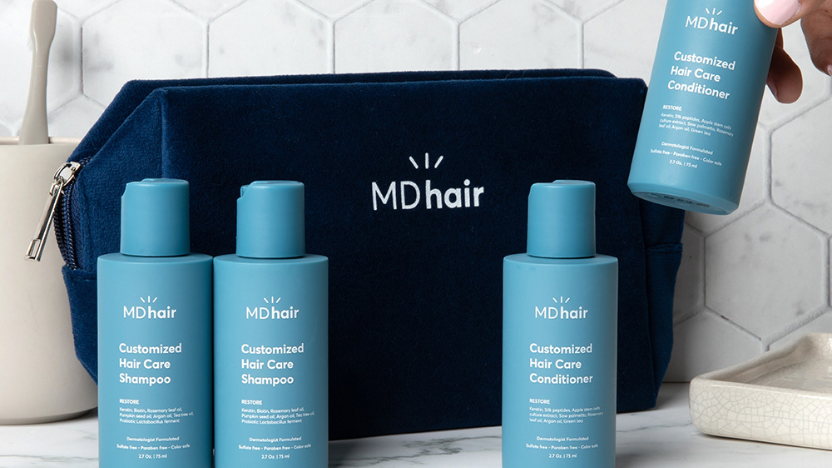Perks Of Using Fish Oil Supplements For Better Brain Health
By Admin
Published on 2025-06-28 00:00:00

AminoMan is a brand that makes supplements to help people stay healthy, recover faster, and perform better in sports or daily life. For those who are looking to strengthen their brain health, taking their fish oil supplement is the best option.
As most of us step into adulthood, so many things start to change: our style, our personality, the way we speak, and perhaps most importantly, our health. Think back to when you were younger: remembering things felt so effortless. We could memorize long exam papers or countless little details without a second thought. But now, that same memory seems to slip away. Sometimes we walk into a room and forget why we went there, or we find ourselves juggling the keys we meant to pick up but forgot all about. It might feel worrying, but the truth is, it happens to almost everyone these days, and it’s a sign that our brain health might need a little extra support.
So why does this happen? It’s because we’re no longer living those carefree childhood days when stress was almost nonexistent. Back then, our minds were relaxed, and that made it easy to focus and remember even the smallest details. However, right now things feel harder because our brains are constantly occupied with thoughts about work, bills, and daily responsibilities. All that stress builds up and takes over the mental space we once used for remembering simple things. So, is there any solution, or do we just have to live with it? Absolutely not. We can help fix it with something as simple as a fish oil supplement. Keep reading to find out how it helps and where you can get one.
Brain-Related Issues People Face
Our brains do a lot for us every day, but sometimes things happen that mess with how we think, feel, or move. Here’s a quick look at some common brain-related issues and what they actually mean:
Brain infections: like meningitis (swelling around the brain) or encephalitis (swelling inside the brain), can cause strong headaches, fever, neck stiffness, and confusion and can make it hard to focus or even stay awake.
Head injuries: like concussions from sports, falls, or accidents. These can leave you feeling forgetful, moody, or struggling to sleep properly.
Brain tumors: whether cancerous or not. They can press on parts of your brain, leading to constant headaches, blurry vision, balance problems, memory issues, or personality changes.
Autoimmune diseases: like multiple sclerosis (MS) This is when your immune system mistakenly attacks your brain and nerves, which can cause numbness, weakness, trouble with coordination, or brain fog.
Neurodegenerative diseases: like Alzheimer’s or Parkinson’s. These get worse over time, leading to memory loss, mood changes, trouble speaking, and movement problems.
How Fish Oil Supplements Can Help
I know all this sounds quite serious, and yeah, a lot of it comes from bigger health issues. But here’s the cool part: research shows fish oil can actually help. Like in one study that lasted a year, older adults with mild memory problems took DHA-rich fish oil and ended up with sharper short-term memory, better recall, and clearer thinking compared to those who didn’t.
What Makes Fish Oil Work
So, what actually makes fish oil so special? It all comes down to two key nutrients: EPA and DHA. These aren’t just random letters; they’re powerful omega-3 fatty acids that mostly come from cold-water fish, and those are:
Sardines
Mackerel
Salmon
Picture it like this: your brain is made up of tiny cells that need the right kind of fat to send signals and keep everything running smoothly. The two main omega-3s found in these fish act like fuel for those brain cells. They keep the cell walls flexible so messages travel faster, and they calm down inflammation that can slow your thinking. Basically, they give your brain what it needs to stay focused.
That’s why you’ve probably also heard adults say these kinds of fish are super healthy. And honestly, just eating them as meals can already help a lot too.
AminoMan’s Omega 1400 Fish Oil
I have a recommendation from a brand called AminoMan that makes many healthy supplements, all tested and made with safe ingredients. From their collection, they also have this fish oil supplement called AminoMan’s Omega 1400 Fish Oil, which is made to help your brain stay healthy and sharp. Each softgel has important omega-3 fats called EPA and DHA, which, as we discussed earlier, are essential for brain health. You just need to take one softgel a day with a meal. The softgels are easy to swallow, and one bottle has 100 softgels—enough for a month. Plus, it’s tested to make sure it’s pure and safe.
Other Benefits
Here are some of the other benefits of this supplement:
Ultra-Pure Certified: Ensures high-quality, contaminant-free oil sourced from cold-water fish.
- Third-party tested: Checked by independent labs to make sure it’s pure and strong.
- Good for joints: Helps keep them flexible and less stiff.
- Supports brain health: Helps with memory, focus, and learning.
- Easy to take: Just one softgel a day.
- Eco-friendly packaging: Uses recyclable materials.
Fish have been considered healthy since ancient times, and adults have always recommended them for better body, hair, and even mental health. That’s why doctors often suggest fish oil supplements to patients dealing with serious brain issues, as they offer many benefits we discussed above. So, whatever memory problems you might be facing, switching to AminoMan fish oil could help, and you’ll be able to see the difference yourself.
AminoMan runs an affiliate program, and we are affiliated with them. As an affiliate partner, I am excited to share this information with you. To get a discount, click on this link and help us earn a small commission at no additional cost to you.
Stay tuned to ByteCrunchy for all the updates on new brain health supplements.
7 Ways to Beating the January Blues to Make your Beginning of the Year Brighter
By Admin
Published on 2024-12-02 00:00:00

The festive joy of Christmas brings excitement, gatherings, and cherished memories. However, once the decorations come down, many people find themselves feeling low, tired, and unmotivated. It is commonly known as the January Blues. Here you can learn why this happens and also learn practical tips to help you beat the winter gloom and stay positive.
Christmas in particular is something extra special. Throughout the whole of December, people enjoy putting up not only a tree but also a mood for the upcoming celebration. These include the fun of attending functions and office parties, gift-giving, and giving out sweets and other items. We all enjoy a series of events where we gather, giggle, get outside, and meet others. Nonetheless, after the booked celebrations are over, many people are left with weakness and certainly, not to mention the “January Blues.” It can't be wrong to say that once the excitement of the Christmas season is over, the chances are most probably getting towards January Blues. Here I want to share my thoughts about January Blue and why it happens. I'll also give some tips to beat them; just keep reading.
What Are January Blues?
The January Blues are a remedy for holiday overstimulation and include irritability, fatigue, loss of energy, and sadness. This change of mood is a result of factors such as a decrease in the number of hours of sunlight, low temperatures, and flopping of the holiday buzz. For some, they feel even worse right after holiday spending or when they are unable to meet their strict New Year’s goals. It is usual for students to go through such a phase, but simple identification of the problem along with its causes will assist in dealing with it tractably.
How January Blues Affect Mental Health
The January blues can have a very disturbing effect on mental health. Continued affection is characterized by hardness, pending of time, eagerness, weariness, and aversion to life responsibilities. In some cases, it might cause some forms of SAD, seriously linked to lack of light in the winter months. The increased stress can also deepen other mental health issues. So it is important to attend to blue feelings as soon as possible.
Ways on How to Have Fun during the January Blues
Even when it is cold outside and January really is something of a depressing month, there is always a way. Yes, there is always the possibility to make yourself feel happier. You can get the year off to the right start. Here are some practical strategies:
1-Be Routine
Practical activity as routine offers rain quantity. There is a need to be consistent with waking up at the same time during the day in order to help regulate the body clock. Take care of yourself; try to exercise, meditate, or do something that makes you happy. Adults should make sure to get quality sleep; that means getting 7-9 hours of sleep for each night’s rest.
2-Preventing Overcommitment
Avoid making unattainable resolutions that can stress you at the beginning of the New Year. Concentrate on objectives that are realistic and quantifiable and which can therefore be stakelike and rewarded. For example, instead of setting vague New Year goals like “I will get fit,” shoot at something like “I will walk for thirty minutes thrice a week.”
3-Get Light
Lack of light during wintertime contributes to a poor mood. Whenever possible, get out of the house during the day for at least a few hours. A short walk may also do the trick. Light therapy boxes should be used to help you escape the darkness and increase your energy levels. It is also possible to redesign your workplace near a window to get the most out of natural lighting.
4-Exercise
Endorphins, the body’s own natural mood enhancers, are released when you exercise. Some people prefer certain exercises, such as yoga, jogging, or a simple home workout session. All these to overcome the blues of feeling dragged back. Consequently, doing any type of activity can enhance your energy, whether walking, stretching, or bending, among others.
5-Eat Healthy
Eating good food is very important for your well-being. A well-balanced diet including essential fruits and vegetables should be taken. A healthy diet can control the rises and dips in blood sugar, which affect your mood. Do not take foods with a lot of sugar because they bring along with them what we refer to as energy crashes. Instead, turn to foods containing omega-3 fatty acids and vitamins, which are vital to a functioning brain.
6-Practice Thankfulness
Major on the things to be thankful for. On small achievements, for instance, you are likely to ponder your achievements in a task or the quality of the last meal prepared. Two of these tips involve getting into the habit of writing down what you are thankful for to gradually make the brain train more positive.
7-Stay Connected
Interacting with other people influences the quality of human life. Try to get in touch with friends and other relatives; if it’s possible, just call or make a video call. Participation in some activities, for instance, participation in community activities and forming clubs, could also go a long way toward reducing loneliness.
Why It Is Necessary to Treat a Case of January Depression
That is why you must not disregard January Blues, as its consequences may have an impact on your continued mental well-being. These feelings, if not addressed, may cause chronic stress, anxiety, or depression. If you are more proactive in managing your mood and energy, it will be possible to survive this stage while also investing in your mental health.
Creating a Practice of Development for January
January doesn’t have to be so bad. Do not consider this a time of reckoning and accusing; rather, consider it a time of self-actualization. Engage in activities that have never really appealed to you before, set realistic goals, and maintain a healthy way of life. It doesn’t take much to turn January from a month of dreariness into a month of optimism and planning. Remember, it is okay to feel low after the holiday high. Do not think that others do not feel like that too. Always remember that if days are still difficult now, then little actions toward your well-being will eventually bring light to your path.
Stay tuned to Byte Crunchy to explore more tips and tricks to beat the January blues.



